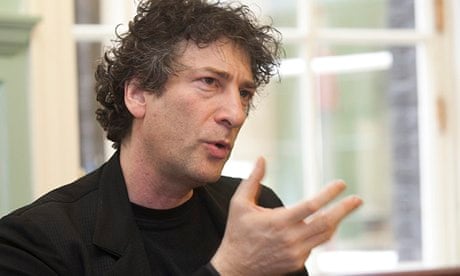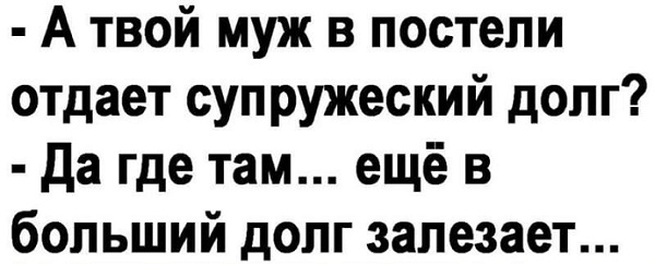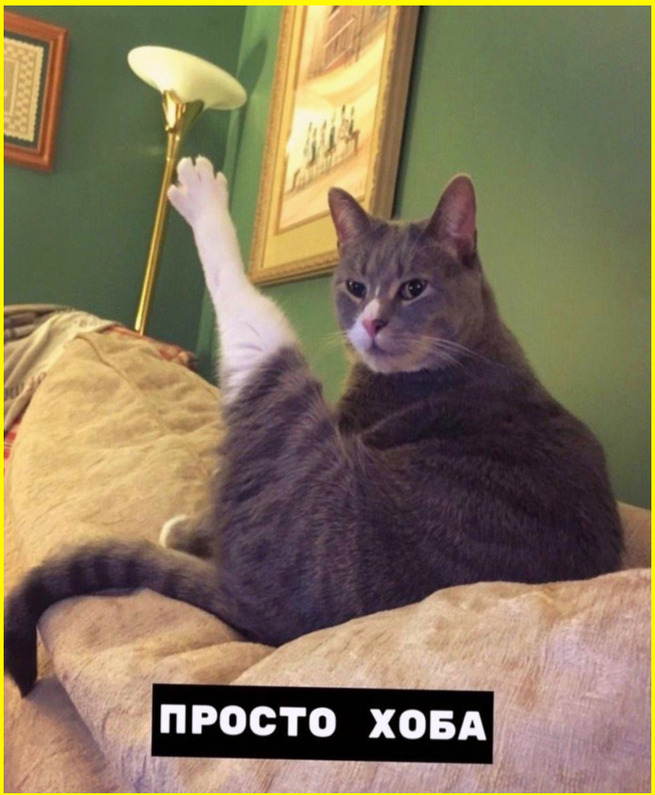

Neil Gaiman: Why our future depends on libraries, reading and daydreaming
A lecture explaining why using our imaginations, and providing for others to use theirs, is an obligation for all citizens
Authors condemn £4m library fund as a ‘sop’ and a ‘whitewash’ https://www.theguardian.com/bo...
Neil Gaiman
Tue 15 Oct 2013 14.51 BSTFirst published on Tue 15 Oct 2013 14.51 BST
Neil Gaiman
‘We have an obligation to imagine’ … Neil Gaiman gives The Reading Agency annual lecture on the future of reading and libraries. Photograph: Robin Mayes
It’s important for people to tell you what side they are on and why, and whether they might be biased. A declaration of members’ interests, of a sort. So, I am going to be talking to you about reading. I’m going to tell you that libraries are important. I’m going to suggest that reading fiction, that reading for pleasure, is one of the most important things one can do. I’m going to make an impassioned plea for people to understand what libraries and librarians are, and to preserve both of these things.
And I am biased, obviously and enormously: I’m an author, often an author of fiction. I write for children and for adults. For about 30 years I have been earning my living through my words, mostly by making things up and writing them down. It is obviously in my interest for people to read, for them to read fiction, for libraries and librarians to exist and help foster a love of reading and places in which reading can occur.
So I’m biased as a writer. But I am much, much more biased as a reader. And I am even more biased as a British citizen.
Sign up for Bookmarks: discover new books in our weekly email
Read more
And I’m here giving this talk tonight, under the auspices of the Reading Agency: a charity whose mission is to give everyone an equal chance in life by helping people become confident and enthusiastic readers. Which supports literacy programs, and libraries and individuals and nakedly and wantonly encourages the act of reading. Because, they tell us, everything changes when we read.
And it’s that change, and that act of reading that I’m here to talk about tonight. I want to talk about what reading does. What it’s good for.
I was once in New York, and I listened to a talk about the building of private prisons – a huge growth industry in America. The prison industry needs to plan its future growth – how many cells are they going to need? How many prisoners are there going to be, 15 years from now? And they found they could predict it very easily, using a pretty simple algorithm, based on asking what percentage of 10 and 11-year-olds couldn’t read. And certainly couldn’t read for pleasure.
It’s not one to one: you can’t say that a literate society has no criminality. But there are very real correlations.
And I think some of those correlations, the simplest, come from something very simple. Literate people read fiction.
Fiction has two uses. Firstly, it’s a gateway drug to reading. The drive to know what happens next, to want to turn the page, the need to keep going, even if it’s hard, because someone’s in trouble and you have to know how it’s all going to end … that’s a very real drive. And it forces you to learn new words, to think new thoughts, to keep going. To discover that reading per se is pleasurable. Once you learn that, you’re on the road to reading everything. And reading is key. There were noises made briefly, a few years ago, about the idea that we were living in a post-literate world, in which the ability to make sense out of written words was somehow redundant, but those days are gone: words are more important than they ever were: we navigate the world with words, and as the world slips onto the web, we need to follow, to communicate and to comprehend what we are reading. People who cannot understand each other cannot exchange ideas, cannot communicate, and translation programs only go so far.
The simplest way to make sure that we raise literate children is to teach them to read, and to show them that reading is a pleasurable activity. And that means, at its simplest, finding books that they enjoy, giving them access to those books, and letting them read them.
I don’t think there is such a thing as a bad book for children. Every now and again it becomes fashionable among some adults to point at a subset of children’s books, a genre, perhaps, or an author, and to declare them bad books, books that children should be stopped from reading. I’ve seen it happen over and over; Enid Blyton was declared a bad author, so was RL Stine, so were dozens of others. Comics have been decried as fostering illiteracy.
Enid Blyton's Famous Five book Five Get Into a Fix
No such thing as a bad writer... Enid Blyton’s Famous Five. Photograph: Greg Balfour Evans/Alamy
It’s tosh. It’s snobbery and it’s foolishness. There are no bad authors for children, that children like and want to read and seek out, because every child is different. They can find the stories they need to, and they bring themselves to stories. A hackneyed, worn-out idea isn’t hackneyed and worn out to them. This is the first time the child has encountered it. Do not discourage children from reading because you feel they are reading the wrong thing. Fiction you do not like is a route to other books you may prefer. And not everyone has the same taste as you.
Well-meaning adults can easily destroy a child’s love of reading: stop them reading what they enjoy, or give them worthy-but-dull books that you like, the 21st-century equivalents of Victorian “improving” literature. You’ll wind up with a generation convinced that reading is uncool and worse, unpleasant.
We need our children to get onto the reading ladder: anything that they enjoy reading will move them up, rung by rung, into literacy. (Also, do not do what this author did when his 11-year-old daughter was into RL Stine, which is to go and get a copy of Stephen King’s Carrie, saying if you liked those you’ll love this! Holly read nothing but safe stories of settlers on prairies for the rest of her teenage years, and still glares at me when Stephen King’s name is mentioned.)
And the second thing fiction does is to build empathy. When you watch TV or see a film, you are looking at things happening to other people. Prose fiction is something you build up from 26 letters and a handful of punctuation marks, and you, and you alone, using your imagination, create a world and people it and look out through other eyes. You get to feel things, visit places and worlds you would never otherwise know. You learn that everyone else out there is a me, as well. You’re being someone else, and when you return to your own world, you’re going to be slightly changed.
Empathy is a tool for building people into groups, for allowing us to function as more than self-obsessed individuals.
You’re also finding out something as you read vitally important for making your way in the world. And it’s this:
The world doesn’t have to be like this. Things can be different.
I was in China in 2007, at the first party-approved science fiction and fantasy convention in Chinese history. And at one point I took a top official aside and asked him Why? SF had been disapproved of for a long time. What had changed?
It’s simple, he told me. The Chinese were brilliant at making things if other people brought them the plans. But they did not innovate and they did not invent. They did not imagine. So they sent a delegation to the US, to Apple, to Microsoft, to Google, and they asked the people there who were inventing the future about themselves. And they found that all of them had read science fiction when they were boys or girls.
Fiction can show you a different world. It can take you somewhere you’ve never been. Once you’ve visited other worlds, like those who ate fairy fruit, you can never be entirely content with the world that you grew up in. Discontent is a good thing: discontented people can modify and improve their worlds, leave them better, leave them different.
And while we’re on the subject, I’d like to say a few words about escapism. I hear the term bandied about as if it’s a bad thing. As if “escapist” fiction is a cheap opiate used by the muddled and the foolish and the deluded, and the only fiction that is worthy, for adults or for children, is mimetic fiction, mirroring the worst of the world the reader finds herself in.
If you were trapped in an impossible situation, in an unpleasant place, with people who meant you ill, and someone offered you a temporary escape, why wouldn’t you take it? And escapist fiction is just that: fiction that opens a door, shows the sunlight outside, gives you a place to go where you are in control, are with people you want to be with(and books are real places, make no mistake about that); and more importantly, during your escape, books can also give you knowledge about the world and your predicament, give you weapons, give you armour: real things you can take back into your prison. Skills and knowledge and tools you can use to escape for real.
As JRR Tolkien reminded us, the only people who inveigh against escape are jailers.
Tolkien's illustration of Bilbo Baggins's home
Tolkien’s illustration of Bilbo’s home, Bag End. Photograph: HarperCollins
Another way to destroy a child’s love of reading, of course, is to make sure there are no books of any kind around. And to give them nowhere to read those books. I was lucky. I had an excellent local library growing up. I had the kind of parents who could be persuaded to drop me off in the library on their way to work in summer holidays, and the kind of librarians who did not mind a small, unaccompanied boy heading back into the children’s library every morning and working his way through the card catalogue, looking for books with ghosts or magic or rockets in them, looking for vampires or detectives or witches or wonders. And when I had finished reading the children’s’ library I began on the adult books.
They were good librarians. They liked books and they liked the books being read. They taught me how to order books from other libraries on inter-library loans. They had no snobbery about anything I read. They just seemed to like that there was this wide-eyed little boy who loved to read, and would talk to me about the books I was reading, they would find me other books in a series, they would help. They treated me as another reader – nothing less or more – which meant they treated me with respect. I was not used to being treated with respect as an eight-year-old.
But libraries are about freedom. Freedom to read, freedom of ideas, freedom of communication. They are about education (which is not a process that finishes the day we leave school or university), about entertainment, about making safe spaces, and about access to information.
I worry that here in the 21st century people misunderstand what libraries are and the purpose of them. If you perceive a library as a shelf of books, it may seem antiquated or outdated in a world in which most, but not all, books in print exist digitally. But that is to miss the point fundamentally.
I think it has to do with nature of information. Information has value, and the right information has enormous value. For all of human history, we have lived in a time of information scarcity, and having the needed information was always important, and always worth something: when to plant crops, where to find things, maps and histories and stories – they were always good for a meal and company. Information was a valuable thing, and those who had it or could obtain it could charge for that service.
In the last few years, we’ve moved from an information-scarce economy to one driven by an information glut. According to Eric Schmidt of Google, every two days now the human race creates as much information as we did from the dawn of civilisation until 2003. That’s about five exobytes of data a day, for those of you keeping score. The challenge becomes, not finding that scarce plant growing in the desert, but finding a specific plant growing in a jungle. We are going to need help navigating that information to find the thing we actually need.
A boy reading in his school library
Photograph: Alamy
Libraries are places that people go to for information. Books are only the tip of the information iceberg: they are there, and libraries can provide you freely and legally with books. More children are borrowing books from libraries than ever before – books of all kinds: paper and digital and audio. But libraries are also, for example, places that people, who may not have computers, who may not have internet connections, can go online without paying anything: hugely important when the way you find out about jobs, apply for jobs or apply for benefits is increasingly migrating exclusively online. Librarians can help these people navigate that world.
I do not believe that all books will or should migrate onto screens: as Douglas Adams once pointed out to me, more than 20 years before the Kindle turned up, a physical book is like a shark. Sharks are old: there were sharks in the ocean before the dinosaurs. And the reason there are still sharks around is that sharks are better at being sharks than anything else is. Physical books are tough, hard to destroy, bath-resistant, solar-operated, feel good in your hand: they are good at being books, and there will always be a place for them. They belong in libraries, just as libraries have already become places you can go to get access to ebooks, and audiobooks and DVDs and web content.
A library is a place that is a repository of information and gives every citizen equal access to it. That includes health information. And mental health information. It’s a community space. It’s a place of safety, a haven from the world. It’s a place with librarians in it. What the libraries of the future will be like is something we should be imagining now.
Literacy is more important than ever it was, in this world of text and email, a world of written information. We need to read and write, we need global citizens who can read comfortably, comprehend what they are reading, understand nuance, and make themselves understood.
Libraries really are the gates to the future. So it is unfortunate that, round the world, we observe local authorities seizing the opportunity to close libraries as an easy way to save money, without realising that they are stealing from the future to pay for today. They are closing the gates that should be open.
According to a recent study by the Organisation for Economic Cooperation and Development, England is the “only country where the oldest age group has higher proficiency in both literacy and numeracy than the youngest group, after other factors, such as gender, socio-economic backgrounds and type of occupations are taken into account”.
Or to put it another way, our children and our grandchildren are less literate and less numerate than we are. They are less able to navigate the world, to understand it to solve problems. They can be more easily lied to and misled, will be less able to change the world in which they find themselves, be less employable. All of these things. And as a country, England will fall behind other developed nations because it will lack a skilled workforce.
Books are the way that we communicate with the dead. The way that we learn lessons from those who are no longer with us, that humanity has built on itself, progressed, made knowledge incremental rather than something that has to be relearned, over and over. There are tales that are older than most countries, tales that have long outlasted the cultures and the buildings in which they were first told.
I think we have responsibilities to the future. Responsibilities and obligations to children, to the adults those children will become, to the world they will find themselves inhabiting. All of us – as readers, as writers, as citizens – have obligations. I thought I’d try and spell out some of these obligations here.
I believe we have an obligation to read for pleasure, in private and in public places. If we read for pleasure, if others see us reading, then we learn, we exercise our imaginations. We show others that reading is a good thing.
We have an obligation to support libraries. To use libraries, to encourage others to use libraries, to protest the closure of libraries. If you do not value libraries then you do not value information or culture or wisdom. You are silencing the voices of the past and you are damaging the future.
We have an obligation to read aloud to our children. To read them things they enjoy. To read to them stories we are already tired of. To do the voices, to make it interesting, and not to stop reading to them just because they learn to read to themselves. Use reading-aloud time as bonding time, as time when no phones are being checked, when the distractions of the world are put aside.
We have an obligation to use the language. To push ourselves: to find out what words mean and how to deploy them, to communicate clearly, to say what we mean. We must not to attempt to freeze language, or to pretend it is a dead thing that must be revered, but we should use it as a living thing, that flows, that borrows words, that allows meanings and pronunciations to change with time.
We writers – and especially writers for children, but all writers – have an obligation to our readers: it’s the obligation to write true things, especially important when we are creating tales of people who do not exist in places that never were – to understand that truth is not in what happens but what it tells us about who we are. Fiction is the lie that tells the truth, after all. We have an obligation not to bore our readers, but to make them need to turn the pages. One of the best cures for a reluctant reader, after all, is a tale they cannot stop themselves from reading. And while we must tell our readers true things and give them weapons and give them armour and pass on whatever wisdom we have gleaned from our short stay on this green world, we have an obligation not to preach, not to lecture, not to force predigested morals and messages down our readers’ throats like adult birds feeding their babies pre-masticated maggots; and we have an obligation never, ever, under any circumstances, to write anything for children that we would not want to read ourselves.
We have an obligation to understand and to acknowledge that as writers for children we are doing important work, because if we mess it up and write dull books that turn children away from reading and from books, we ‘ve lessened our own future and diminished theirs.
We all – adults and children, writers and readers – have an obligation to daydream. We have an obligation to imagine. It is easy to pretend that nobody can change anything, that we are in a world in which society is huge and the individual is less than nothing: an atom in a wall, a grain of rice in a rice field. But the truth is, individuals change their world over and over, individuals make the future, and they do it by imagining that things can be different.
Look around you: I mean it. Pause, for a moment and look around the room that you are in. I’m going to point out something so obvious that it tends to be forgotten. It’s this: that everything you can see, including the walls, was, at some point, imagined. Someone decided it was easier to sit on a chair than on the ground and imagined the chair. Someone had to imagine a way that I could talk to you in London right now without us all getting rained on.This room and the things in it, and all the other things in this building, this city, exist because, over and over and over, people imagined things.
We have an obligation to make things beautiful. Not to leave the world uglier than we found it, not to empty the oceans, not to leave our problems for the next generation. We have an obligation to clean up after ourselves, and not leave our children with a world we’ve shortsightedly messed up, shortchanged, and crippled.
We have an obligation to tell our politicians what we want, to vote against politicians of whatever party who do not understand the value of reading in creating worthwhile citizens, who do not want to act to preserve and protect knowledge and encourage literacy. This is not a matter of party politics. This is a matter of common humanity.
Albert Einstein was asked once how we could make our children intelligent. His reply was both simple and wise. “If you want your children to be intelligent,” he said, “read them fairy tales. If you want them to be more intelligent, read them more fairy tales.” He understood the value of reading, and of imagining. I hope we can give our children a world in which they will read, and be read to, and imagine, and understand.
• This is an edited version of Neil Gaiman’s lecture for the Reading Agency, delivered on Monday October 14 at the Barbican in London. The Reading Agency’s annual lecture series was initiated in 2012 as a platform for leading writers and thinkers to share original, challenging ideas about reading and libraries.
Since you're here ...
… joining us from Russia, we have a small favour to ask. You've read 6 articles in the last nine months. And you’re not alone; millions are flocking to the Guardian for quality news every day. We believe everyone deserves access to factual information, and analysis that has authority and integrity. That’s why, unlike many others, we made a choice: to keep Guardian reporting open for all, regardless of where they live or what they can afford to pay.
As an open, independent news organisation we investigate, interrogate and expose the actions of those in power, without fear. With no shareholders or billionaire owner, our journalism is free from political and commercial bias – this makes us different. We can give a voice to the oppressed and neglected, and stand in solidarity with those who are calling for a fairer future. With your help we can make a difference.
We’re determined to provide journalism that helps each of us better understand the world, and take actions that challenge, unite, and inspire change – in times of crisis and beyond. Our work would not be possible without our readers, who now support our work from 180 countries around the world.
But news organisations are facing an existential threat. With advertising revenues plummeting, the Guardian risks losing a major source of its funding. More than ever before, we’re reliant on financial support from readers to fill the gap. Your support keeps us independent, open, and means we can maintain our high quality reporting – investigating, disentangling and interrogating.
Every reader contribution, however big or small, is so valuable for our future. Support the Guardian from as little as $1 – and it only takes a minute. Thank you.
Почему наше будущее зависит от чтения https://fit4brain.com/7524
Шикарная статья писателя Нила Геймана о природе и пользе чтения. Это не просто туманное размышление, а очень понятное и последовательное доказательство, казалось бы, очевидных вещей.
Если у вас есть друзья-математики, которые спрашивают вас, зачем читать художественную литературу, дайте им этот текст. Если у вас есть друзья, которые убеждают вас, что скоро все книги станут электронными, дайте им этот текст. Если вы с теплотой (или наоборот с ужасом) вспоминаете походы в библиотеку, прочитайте этот текст. Если у вас подрастают дети, прочитайте с ними этот текст, а если вы только задумываетесь о том, что и как читать с детьми, тем более прочитайте этот текст.
Людям важно объяснять, на чьей они стороне. Своего рода декларация интересов.
Итак, я собираюсь поговорить с вами о чтении и о том, что чтение художественной литературы и чтение для удовольствия является одной из самых важных вещей в жизни человека.
И я очевидно очень сильно пристрастен, ведь я писатель, автор художественных текстов. Я пишу и для детей, и для взрослых. Уже около 30 лет я зарабатываю себе на жизнь с помощью слов, по большей части создавая вещи и записывая их. Несомненно я заинтересован, чтобы люди читали, чтобы люди читали художественную литературу, чтобы библиотеки и библиотекари существовали и способствовали любви к чтению и существованию мест, где можно читать. Так что я пристрастен как писатель. Но я гораздо больше пристрастен как читатель.
Однажды я был в Нью-Йорке и услышал разговор о строительстве частных тюрем – это стремительно развивающаяся индустрия в Америке. Тюремная индустрия должна планировать свой будущий рост – сколько камер им понадобится? Каково будет количество заключенных через 15 лет? И они обнаружили, что могут предсказать все это очень легко, используя простейший алгоритм, основанный на опросах, какой процент 10 и 11-летних не может читать. И, конечно, не может читать для своего удовольствия.
В этом нет прямой зависимости, нельзя сказать, что в образованном обществе нет преступности. Но взаимосвязь между факторами видна. Я думаю, что самые простые из этих связей происходят из очевидного:
Грамотные люди читают художественную литературу.
У художественной литературы есть два назначения:
Во-первых, она открывает вам зависимость от чтения. Жажда узнать, что же случится дальше, желание перевернуть страницу, необходимость продолжать, даже если будет тяжело, потому что кто-то попал в беду, и ты должен узнать, чем это все кончится… в этом настоящий драйв. Это заставляет узнавать новые слова, думать по-другому, продолжать двигаться вперед. Обнаруживать, что чтение само по себе является наслаждением. Единожды осознав это, вы на пути к постоянному чтению.
Простейший способ гарантировано вырастить грамотных детей – это научить их читать и показать, что чтение – это приятное развлечение. Самое простое – найдите книги, которые им нравятся, дайте к ним доступ и позвольте их прочесть.
Не существует плохих авторов для детей, если дети хотят их читать и ищут их книги, потому что все дети разные. Они находят нужные им истории, и они входят внутрь этих историй. Избитая затасканная идея не избита и затаскана для них. Ведь ребенок открывает ее впервые для себя. Не отвращайте детей от чтения лишь потому, что вам кажется, будто они читают неправильные вещи. Литература, которая вам не нравится, – это путь к книгам, которые могут быть вам по душе. И не у всех одинаковый с вами вкус.
И вторая вещь, которую делает художественная литература, – она порождает эмпатию. Когда вы смотрите телепередачу или фильм, вы смотрите на вещи, которые происходят с другими людьми. Художественная проза – это что-то, что вы производите из 33 букв и пригоршни знаков препинания, и вы, вы один, используя свое воображение, создаете мир, населяете его и смотрите вокруг чужими глазами. Вы начинаете чувствовать вещи, посещать места и миры, о которых вы бы и не узнали. Вы узнаете, что внешний мир – это тоже вы. Вы становитесь кем-то другим, и когда возвратитесь в свой мир, то что-то в вас немножко изменится.
Эмпатия – это инструмент, который собирает людей вместе и позволяет вести себя не как самовлюбленные одиночки.
Вы также находите в книжках кое-что жизненно важное для существования в этом мире. И вот оно: миру не обязательно быть именно таким. Все может измениться.
В 2007 году я был в Китае, на первом одобренном партией конвенте по научной фантастике и фэнтези. В какой-то момент я спросил у официального представителя властей: почему? Ведь НФ не одобрялась долгое время. Что изменилось?
Все просто, сказал он мне. Китайцы создавали великолепные вещи, если им приносили схемы. Но ничего они не улучшали и не придумывали сами. Они не изобретали. И поэтому они послали делегацию в США, в Apple, Microsoft, Google и расспросили людей, которые придумывали будущее, о них самих. И обнаружили, что те читали научную фантастику, когда были мальчиками и девочками.
Литература может показать вам другой мир. Она может взять вас туда, где вы никогда не были. Один раз посетив другие миры, как те, кто отведали волшебных фруктов, вы никогда не сможете быть полностью довольны миром, в котором выросли. Недовольство – это хорошая вещь. Недовольные люди могут изменять и улучшать свои миры, делать их лучше, делать их другими.
Верный способ разрушить детскую любовь к чтению – это, конечно, убедиться, что рядом нет книг. И нет мест, где дети бы могли их прочитать. Мне повезло. Когда я рос, у меня была великолепная районная библиотека. У меня были родители, которых можно было убедить забросить меня в библиотеку по дороге на работу во время каникул.
Библиотеки – это свобода. Свобода читать, свобода общаться. Это образование (которое не заканчивается в тот день, когда мы покидаем школу или университет), это досуг, это убежище и это доступ к информации.
Я думаю, что тут все дело в природе информации. Информация имеет цену, а правильная информация бесценна. На протяжении всей истории человечества мы жили во времена нехватки информации. Получить необходимую информацию всегда было важно и всегда чего-то стоило. Когда сажать урожай, где найти вещи, карты, истории и рассказы – это то, что всегда ценилось за едой и в компаниях. Информация была ценной вещью, и те, кто обладали ею или добывали ее, могли рассчитывать на вознаграждение.
В последние годы мы отошли от нехватки информации и подошли к перенасыщению ею. Согласно Эрику Шмидту из Google, теперь каждые два дня человеческая раса создает столько информации, сколько мы производили от начала нашей цивилизации до 2003 года. Это что-то около пяти эксобайтов информации в день, если вы любите цифры. Сейчас задача состоит не в том, чтобы найти редкий цветок в пустыне, а в том, чтобы разыскать конкретное растение в джунглях. Нам нужна помощь в навигации, чтобы найти среди этой информации то, что нам действительно нужно.
Книги – это способ общаться с мертвыми. Это способ учиться у тех, кого больше нет с нами. Человечество создало себя, развивалось, породило тип знаний, которые можно развивать, а не постоянно запоминать. Есть сказки, которые старше многих стран, сказки, которые надолго пережили культуры и стены, в которых они были впервые рассказаны.
read
Если вы не цените библиотеки, значит, вы не цените информацию, культуру или мудрость. Вы заглушаете голоса прошлого и вредите будущему.
Мы должны читать вслух нашим детям. Читать им то, что их радует. Читать им истории, от которых мы уже устали. Говорить на разные голоса, заинтересовывать их и не прекращать читать только потому, что они сами научились это делать. Делать чтение вслух моментом единения, временем, когда никто не смотрит в телефоны, когда соблазны мира отложены в сторону.
Мы должны пользоваться языком. Развиваться, узнавать, что значат новые слова и как их применять, общаться понятно, говорить то, что мы имеем в виду. Мы не должны пытаться заморозить язык, притворяться, что это мертвая вещь, которую нужно чтить. Мы должны использовать язык как живую вещь, которая движется, которая несет слова, которая позволяет их значениям и произношению меняться со временем.
Писатели – особенно детские писатели – имеют обязательства перед читателями. Мы должны писать правдивые вещи, что особенно важно, когда мы сочиняем истории о людях, которые не существовали, или местах, где не бывали, понимать, что истина – это не то, что случилось на самом деле, но то, что рассказывает нам, кто мы такие.
В конце концов, литература – это правдивая ложь, помимо всего прочего. Мы должны не утомлять наших читателей, но делать так, чтобы они сами захотели перевернуть следующую страницу. Одно из лучших средств для тех, кто читает с неохотой – это история, от которой они не могут оторваться.
Мы должны говорить нашим читателям правду, вооружать их, давать защиту и передавать ту мудрость, которую мы успели почерпнуть из нашего недолгого пребывания в этом зеленом мире. Мы не должны проповедовать, читать лекции, запихивать готовые истины в глотки наших читателей, как птицы, которые кормят своих птенцов предварительно разжеванными червяками. И мы не должны никогда, ни за что на свете, ни при каких обстоятельствах писать для детей то, что бы нам не хотелось прочитать самим.
Все мы – взрослые и дети, писатели и читатели – должны мечтать. Мы должны выдумывать. Легко притвориться, что никто ничего не может изменить, что мы живем в мире, где общество огромно, а личность меньше чем ничто, атом в стене, зернышко на рисовом поле. Но правда состоит в том, что личности меняют мир снова и снова, личности создают будущее, и они делают это, представляя, что вещи могут быть другими.
Оглянитесь. Я серьезно. Остановитесь на мгновение и посмотрите на помещение, в котором вы находитесь. Я хочу показать что-то настолько очевидное, что его все уже забыли. Вот оно: все, что вы видите, включая стены, было в какой-то момент придумано. Кто-то решил, что гораздо легче будет сидеть на стуле, чем на земле, и придумал стул. Кому-то пришлось придумать способ, чтобы я мог говорить со всеми вами в Лондоне прямо сейчас, без риска промокнуть. Эта комната и все вещи в ней, все вещи в здании, в этом городе существуют потому, что снова и снова люди что-то придумывают.
Мы должны делать вещи прекрасными. Не делать мир безобразнее, чем он был до нас, не опустошать океаны, не передавать наши проблемы следующим поколениям. Мы должны убирать за собой, и не оставлять наших детей в мире, который мы так глупо испортили, обворовали и изуродовали.
Однажды Альберта Эйнштейна спросили, как мы можем сделать наших детей умнее. Его ответ был простым и мудрым. Если вы хотите, чтобы ваши дети были умны, сказал он, читайте им сказки. Если вы хотите, чтобы они были еще умнее, читайте им еще больше сказок. Он понимал ценность чтения и воображения.
Я надеюсь, что мы сможем передать нашим детям мир, где они будут читать, и им будут читать, где они будут воображать и понимать.







Оценили 4 человека
12 кармы